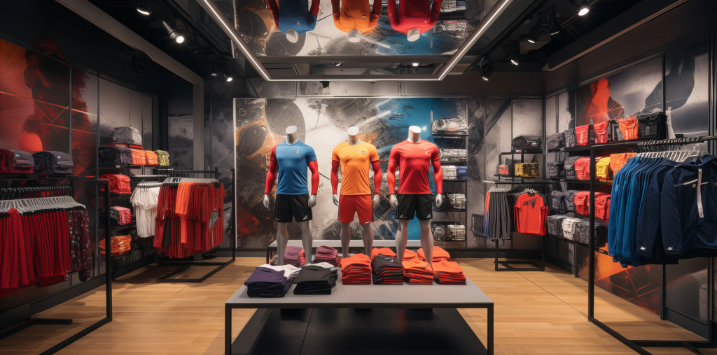
Super Retail Group financial year 2025 results
Super Retail Group (ASX: SUL), the parent company of brands like Supercheap Auto (SCA), Rebel Sport, BCF, and Macpac, just released its full-year 2025 results, delivering a strong performance and beating consensus net profit after tax (NPAT) and earnings before interest and tax (EBIT) expectations on the back of accelerating like-for-like (LFL) sales growth, better-than-expected gross margins, and tight cost control.
Most analysts have already weighed in with generally positive assessments, highlighting the resilience of the company’s core divisions and a promising start to financial year 2026 (FY26). However, there is some caution associated with higher-than-expected costs and a lower special dividend.
Key Financial Highlights from FY25
SUL’s FY25 results reveal yet another retailer performing robustly in a challenging retail environment, with sales and profitability exceeding forecasts.
Sales: Came in at A$4.07 billion, up 4.5 per cent year-on-year (YoY), beating market consensus (Visible Alpha) of A$4.05 billion. Analysts noted life-for-like (LFL) growth accelerated throughout the period, contributing to the beat.
EBIT: Reported at A$400 million, down a marginal 0.2 per cent YoY but significantly ahead of consensus (A$375 million). The beat was primarily attributed to stronger performances in Super Cheap Auto (SCA) and Rebel, with corporate/unallocated costs also coming in lower than expected (A$32.1 million vs. expectations of A$35.8 million).
NPAT (Normalised): A$232 million, down 4.0 per cent YoY, but a solid six per cent beat versus consensus of A$219 million. Reported NPAT was A$222 million. The outperformance stemmed from improving sales trends, a slight gross margin beat (e.g., SCA’s margins expanded circa 30bps despite category pressures), and costs below expectations.
Cash flow and capital expenditure (Capex): Operating cash flow was A$577 million with strong conversion at circa 95 per cent. Capex was A$165 million, in line with most estimates.
Dividends: Total Dividend Per Share (DPS) of 96 cps, including a 30 cps special dividend, which was above consensus of 83 cps). Importantly, post-special dividend, SUL remains within its targeted net debt/earnings before interest, tax, depreciation, and amortisation (EBITDA) gearing range of 0-0.5x (pre-AASB16).
Overall, brokers described the result as “solid” and “strong,” with the circa six per cent NPAT beat driven by sales momentum, margin resilience, and cost discipline. One minor negative highlighted was the special dividend shortfall, but this was offset by the company’s conservative balance sheet positioning.
Divisional Performance
SUL’s diversified portfolio shone through again, with most divisions beating expectations. SCA and Rebel are the key drivers, while BCF held steady and Macpac faced headwinds but still outperformed forecasts.
Supercheap Auto (SCA, circa 38 per cent of revenues): EBIT of A$218.4 million (-1.5 per cent YoY), beating consensus by circa 5.6 per cent. Second half of the year (2H25) LFL growth was +0.7 per cent, with full-year gross margins expanding circa 30bps (flat in first half of 2025 (1H25)). Analysts noted this as a “very strong result” given ongoing category margin concerns. SCA’s high margins make it a standout.
Rebel Sport: EBIT of A$123.7 million (+1.9 per cent YoY), beating consensus by circa 6.5 per cent. 2H25 LFL growth was +4.3 per cent, reflecting solid sales momentum in activewear and sports categories.
BCF (Boating, Camping, Fishing): EBIT of A$75.4 million was up 12.9 per cent YoY. 2H25 LFL growth decelerated to +7.2 per cent, but the division’s growth is seen as consistent and on-track.
Macpac: EBIT of A$14.3 million was down 35 per cent YoY, beating estimates despite the decline. 2H25 LFL growth was +3.7 per cent reflecting some second-half improvement. It is hoped that leadership changes, with the CEO retiring and being replaced by an ex-Kathmandu executive, will stabilise the outdoor brand.
Corporate and unallocated EBIT was better than expected, contributing to the group beat. Across divisions, LFL acceleration was a recurring theme, highlighting improving consumer trends, which contrasts with the broader macro gloom narrative.
FY26 trading update and guidance
The early FY26 trading update revealed LFL sales growth in the first seven weeks, outperforming. Easier comps ahead for some divisions is also a feature.
Like-for-like (LFL) sales growth (First seven weeks vs. consensus for 1H26/FY26):
Group: +3.1 per cent (in line with consensus of +3.1 per cent).
SCA: +3.3 per cent (ahead of consensus for FY26 +1.9 per cent) with comps easing.
Rebel: +2.7 per cent (slightly below consensus FY26 of +2.9 per cent; comps more challenging).
BCF: +3.6 per cent (ahead of consensus for FY26 of +3 per cent; comps challenging).
Macpac: +1.9 per cent (slightly below consensus for FY26 of +2.3 per cent; comps improving).
Guidance for FY26 included:
Unallocated/other costs: Expected at A$60 million, higher than consensus (A$55 million). This is a minor negative.
Capex: A$155 million, above consensus (A$148 million), but is supporting growth initiatives.
Store growth: Gross openings of 23 (consensus +20), with nine closures. Breakdown: SCA +8 (consensus +9), Rebel +8 (consensus +4), BCF +5 (consensus +5), Macpac +2 (consensus +2). Strong expansion particularly in Rebel.
Overall, the trading update is strong, with Super Cheap Auto (SCA) (the highest-margin division) significantly ahead of 1H26 expectations. Comps easing in SCA and Macpac could drive further upside, though keep in mind harder comps in Rebel and BCF.
Outlook:
Consensus leans positive, with a strong start to FY26 being emphasized, particularly in SCA. Risks include higher other costs and capex, but these are offset by store expansion and easier comps in some divisions. Macpac’s leadership transition is relatively neutral, with investors looking for evidence of the changes generating improvement.
Super Retail Group’s FY25 results reaffirm its position as a defensive retailer with diversified exposure to auto, sports, and outdoor categories. The six per cent NPAT beat, driven by SCA and Rebel, alongside a strong start to FY26, has analysts upbeat, though watchful on costs. At 15x FY27 PE, SUL is not expensive relative to comps, making it an appealing pick for investors eyeing consumer discretionary recovery. As always, keep an eye on macro trends like consumer spending and inflation.